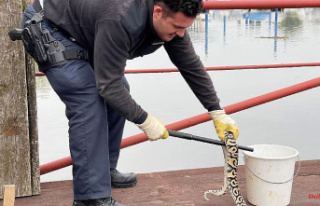Cologne (dpa / lnw) - A 42-year-old woman in Cologne has been sentenced to life imprisonment for attempting to murder her father-in-law. After 57 days of negotiations, the Cologne Regional Court was convinced on Thursday that the woman had tried to kill the then 80-year-old with an insulin overdose in July 2020. The senior, who until then was still a practicing doctor in a Cologne practice, survived the overdose, but has been in need of serious care ever since. The court also ordered the German to pay 75,000 euros in damages to the senior. The judgment is not final. The woman's defenders announced revision. The accused had vehemently denied the allegations.
In its approximately two-hour reasoning, the court assessed the act as "extremely perfidious". The accused used a visit with her then five-year-old daughter to her grandfather to kill the man. The visit with the granddaughter was a "trap", the defendant had "used the child as a key". The court was convinced that the senior would not have welcomed his daughter-in-law alone due to a very bad relationship. The accused then first administered a sedative to the father-in-law in the coffee. After the effect had set in, she distracted her daughter with children's films on her mobile phone and gave the senior an "incredibly large amount of insulin".
The court attributed particular probative value to the defendant's Internet search history, which was reconstructed after it had been deleted. An "incredible abundance of explosive searches" on drugs, their mode of action and lethality was found. From the end of May 2020, the defendant was busy with almost nothing else. "The search history speaks a very clear language," said the chairman. The district court did not make any determination as to where the defendant should have gotten the insulin from.
The court complied with the prosecutor's request by imprisoning him for life. The defense attorneys had pleaded for acquittal. In the process, they tried to prove that the timing of the crime could not be reconciled with scientific knowledge about the mode and duration of action of insulin.












